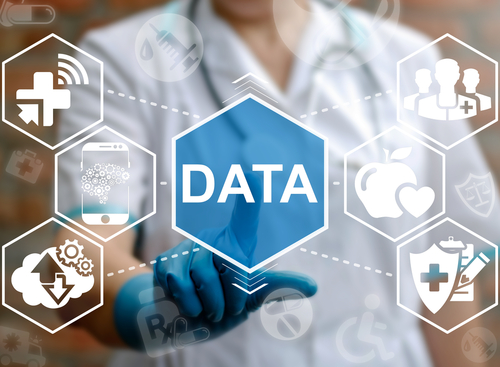In this contributed article, David Leichner is CMO at SQream, discusses how healthcare organizations are waging battles against cancer, diabetes and heart disease while also struggling to beat the COVID-19 pandemic. Despite the fact all of these illnesses have different symptoms and causes they all have something in common. Big Data is being fed into models that can find potential treatment and cures.
Three Ways Data Scientists are Fighting COVID-19
Data scientists in academia, non-profits, and the government have come together to track and respond to the economic & humanitarian impacts of the coronavirus. Put together by our friends over at SafeGraph, here are three ways data scientists are fighting COVID-19.
Accounting for the Unknown in the Time of COVID-19: How Data Scientists Can Adapt
In this special guest feature, Jonathan Prantner, Co-founder & Chief Analytics Officer at RXA, discusses how given the fast-paced nature of the world right now, data scientists working to understand and predict business impact will need to adjust current models or build new ones to make sense of COVID-19.
Prioritize, Don’t Ration: AI Will Lead Healthcare through the Post-COVID Bottleneck
In this contributed article, Ohad Arazi, Chief Executive Officer of Zebra Medical Vision, explains that while AI can’t yet fight the coronavirus directly, it can play a central role in creating the efficiency needed for healthcare professionals to get to as many cases possible, especially post-COVID-19.
How Data Collection During the Country’s Reopening Can Accelerate Return to Normalcy
In this contributed article, Sheldon H. Jacobson, PhD,, Founder Professor of Computer Science at the University of Illinois at Urbana-Champaign, is an advocate for advanced-analytics-based modeling to monitor the spread of COVID-19. Every state reopening represents an opportunity to collect data and identify best practices that can benefit other states.
Insights Beyond the Bedside: Machine Learning for Healthcare Administration, Utilization, and Cost (AUC)
In this special guest feature, Corinne Stroum, Director of Product for Utilization and Cost at KenSci, discusses how healthcare’s migration to electronic medical records in the early 2010s heralded an age of promise: increased efficiency, an opportunity to understand disease and populations at scale, and a reduction in errors. Like other industries, healthcare has also faced the challenge of adopting technologies before policy and ethics have had a chance to understand its implications.
Big Data/COVID-19 News – 6/1/2020
The big data ecosystem has come out strong to help combat the global coronavirus pandemic by announcing new products and services to help fight COVID-19. In this article, I’ve listed a number of the recent announcements along these lines. Kudos to all the vendors listed below, you may just make an important difference in getting the world past these trying times!
Intel Works with University of Pennsylvania in Using Privacy-Preserving AI to Identify Brain Tumors
Intel Labs and the Perelman School of Medicine at the University of Pennsylvania (Penn Medicine) are co-developing technology to enable a federation of 29 international healthcare and research institutions led by Penn Medicine to train artificial intelligence (AI) models that identify brain tumors using a privacy-preserving technique called federated learning.
Big Data/COVID-19 News – 4/26/2020
The big data ecosystem has come out strong to help combat the global coronavirus pandemic by announcing new products and services to help fight COVID-19. In this article, I’ve listed a number of the recent announcements along these lines. Kudos to all the vendors listed below, you may just make an important difference in getting the world past these trying times!
Explainable AI: The key to Responsibly Adopting AI in Medicine
In this special guest feature, Niv Mizrahi, CTO & Co-Founder of Emedgene, discusses a field of technology that constantly is rising in importance – explainable (or interpretable) AI, and specifically how it has become a key responsibility for adopting AI in medicine. Emedgene is a genomics company using AI to automatically interpret genetic data so that health organizations can scale personalized care to wider populations.










